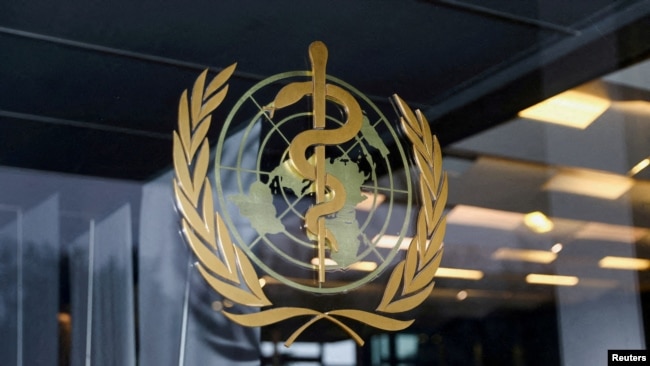世界情勢は日々刻々と変化し、出来事は次々と塗り替えられ、そして記憶のかなたへと追いやられていきます。
WHO、そういえば・・・と思うほどに、コロナの前では無力だったと感じています。
世界機関とは何なのでしょうか?
民主主義国家間であれば、意思疎通を測り話し合い・ネゴシエーションを通して解決策を見出すことも可能です。多数決もその意義を感じます。
しかし、国家体勢が違う国との同じ枠組みは、その限界をいつも私たちに突き付けます。国際司法裁判所の決定はゴミ屑にされ、国際法違反は今なお平然となされています。そして、今日も世界は平然と過ごしています。
私はVOAで英語を学び、世界の今を見つめます!!
WHOにパンデミックに関する新条約は必要か?(和訳)
Does the WHO Need a New Treaty for Pandemics?
March 07, 2022
世界保健機関(WHO)で、パンデミックに対処するための新たなルールに関する交渉が始まりました。
国連の保健機関は、194の加盟国が合意に至る目標を2024年5月に設定しました。世界を襲う感染症に対処するためのルールを策定するのが目的です。
新しい感染性物質に対する防御を改善するための200以上の勧告の中に、新しい協定が含まれています。この勧告は、2年間で620万人以上の死者を出したCOVID-19の大流行に関する研究においてなされたものです。
独立した諮問機関は、COVID-19が出現したとき、WHOは”力不足であったと評しています。同機関は、発生を調査し、病気の蔓延を抑えるための対策を組織するための限られた権限しか持っていないと述べています。
2月17日、米国のジャネット・イエレン財務長官は、G20の経済大国に対し、世界的なパンデミックを防止するための基金を世界銀行に創設するよう呼びかけました。これは、74年の歴史を持つ世界銀行の将来を決める可能性のある取り組みの一つです。
パンデミック条約とは?
WHOにはすでに国際保健規則という規則があり、2005年に最終更新されました。この規則は、公衆衛生上の出来事が国境を越える可能性がある場合の各国の責任を定めています。この規則は国際法として効力を持つ。この規則には、健康上の緊急事態や貿易・旅行に関する措置について、直ちにWHOに報告することが含まれています。
現行版の更新は、2002年から2003年にかけてのSARSウイルスの大流行の後に行われました。これらの規定は、エボラウイルスのような地域的な流行に対してはまだ運用可能と考えられるが、COVID-19のような世界的な大流行に対しては十分とは言えません。
新しい協定の提案には、情報やウイルスのゲノム配列の共有が含まれています。その他、ワクチンを公平に提供するためのルールも提案されています。
ある欧州連合関係者はロイターに対し、欧州連合は野生動物市場の禁止を要求していると語ります。また、新種のウイルスや変異体の報告に対するインセンティブも求めています。
加盟国は8月までに、WHOのテドロス・アダノム・ゲブレイエス事務局長が支持する協定の初期バージョンを決定することになっています。彼は5月に行われる選挙で無投票で2期目の当選を果たすと思われます。
新しいルールは、2003年のタバコ規制枠組み条約以来、2番目の主要な保健協定となります。この条約は、課税と表示・広告に関する規則を通じて喫煙を減らすことを目的とした法的拘束力のある条約です。
各国は条約の更新をどう見ているのか?
EUは新条約を提案し、その最大の支持者であり、英国、インドネシア、ケニア、その他いくつかの国からも支持を受けています。
米国は協議に参加しますが、国際法としての効力を持つ条約には反対しています。インドとブラジルも懸念を表明しています。
加盟国は190カ国を超え、新たな協定を結ぶのは難しい。
新条約はどのように機能するのか?
新しい協定の法的性質は、まだ協議によって定義されるに過ぎません。WHOはこのような協定を説明するために特別な言葉を使います。WHOは一般的に それを"インストルメント文章 "と呼んでいます。同機関には、3種類の文章があります:勧告、規則、そして条約です。
このうち、規則は、自動的に法的拘束力を持つ、つまり国際法の力を持ちますー加盟国が反対しない限り。
2005年の規則と新しいパンデミック条約がどのように組み合わされるかは、まだ明らかではありません。
一つの提案として、両者は協力し合うべきであるとされています。この提案では、地域的な大流行に対しては既存の規則を使用します。新しい条約は、WHOがパンデミック宣言をした場合に発効します。
交渉担当者が制裁措置などの強制手段を含めるかどうかは、まだ決定していません。
他の改革も検討されているのか?
2005年の規則を更新する米国の提案については、別途協議が行われています。
米国の提案は、開放性を高め、WHOが感染症が発生している場所に迅速に到達できるようにすることを目的としています。複数の外交官によれば、この提案は反対される可能性が高いといいます。中国や他の国々は、国家主権を理由にこのような措置を拒否することが予想されるといいます。
中国はWHO主導の専門家チームがCOVID-19の大流行が始まったWuhanを訪問することを許可しました。しかし、WHOはSARS-CoV-2ウイルスがどのように発生したかについて手がかりとなる初期症例の臨床データをまだ保留しているといいます。
また、WHO加盟国による別のワーキンググループでは、WHOの資金調達構造の改革について議論しています。彼らは、パンデミック発生時に資金を確保することを望んでいます。これまでのところ、WHOの最大のドナーである米国は、加盟国の年間支払額を増やすという計画に反対しています。
Does the WHO Need a New Treaty for Pandemics?
Negotiations on new rules for dealing with pandemics have begun at the World Health Organization (WHO).
The United Nations health agency has set a target date of May 2024 for its 194-member countries to reach an agreement. The goal is to develop rules for dealing with infectious diseases that affect the world.
A new agreement is among more than 200 recommendations for improving defenses against new infectious materials. The recommendations were made in studies of the COVID-19 pandemic that has caused the deaths of more than 6.2 million people in two years.
An independent advisory group described the WHO as "underpowered" when COVID-19 appeared. It said the agency had limited powers to investigate outbreaks and to organize measures to limit the spread of disease.
On February 17, U.S. Treasury Secretary Janet Yellen called on the G20 economic powers to create a fund at the World Bank to help prevent global pandemics. It is among the efforts that could decide the future of the 74-year-old body.
What is the Pandemic Treaty?
The WHO already has rules known as the International Health Regulations which were last updated in 2005. The rules set out countries' responsibilities when public health events can cross borders. The rules have the force of international law. These include advising the WHO immediately of health emergencies and of measures related to trade and travel.
The updates of the current version were developed after the 2002 to 2003 SARS virus outbreak. These regulations are still considered operational for regional epidemics like the Ebola virus, but not enough for a global pandemic like COVID-19.
Suggested proposals for a new agreement include the sharing of information and genome sequences of viruses. Other proposals include rules for providing vaccines fairly.
A European Union official told Reuters the E.U. is pushing for a ban on wildlife markets. It also wants incentives for reporting of new viruses or variants.
Member states have until August to decide on an early version of the agreement which WHO director-general Tedros Adhanom Ghebreyesus supports. He is likely to be elected unopposed for a second term in May.
A new set of rules would be only the second major health agreement since the 2003 Framework Convention on Tobacco Control. It is a legally-binding treaty which aims to reduce smoking through taxation and rules on labeling and advertising.
How do countries see an updated treaty?
The E.U. proposed a new treaty and is its biggest backer, with support from Britain, Indonesia, Kenya and some other countries.
The United States will take part in the talks, but has opposed a treaty with the force of international law. India and Brazil have also voiced concerns.
With more than 190-member countries involved, securing a new agreement will be difficult.
How would a new treaty work?
The legal nature of any new agreement remains to be defined by talks. The WHO uses special words to describe such agreements. The WHO generally calls it an "instrument." The agency has three kinds of instruments: recommendations, regulations and conventions.
Of those, regulations are automatically legally binding, or possess the force of international law, for members — unless they object.
It is not yet clear how the 2005 regulations and a new pandemic treaty might fit together.
One suggestion is that they should work together. In this proposal, existing rules would be used for local outbreaks. The new treaty would take effect if the WHO declares a pandemic.
It remains to be decided whether negotiators will include enforcement measures such as sanctions.
Are other reforms being considered?
Separate talks on a U.S. proposal to update the 2005 rules have been taking place.
U.S. proposals aim to increase openness and permit the WHO to faster reach places where outbreaks are happening. Several diplomats said the proposals are likely to be opposed. They say China and other nations are expected to reject such measures on national sovereignty grounds.
China did permit WHO-led expert teams to visit Wuhan where the COVID-19 pandemic started. But the WHO says it is still withholding clinical data from early cases that may hold clues about the how the SARS-CoV-2 virus started.
Another working group of WHO member countries is discussing reforms to the WHO funding structure. They want money to be available in the event of a pandemic. So far, the United States, which is the WHO's top donor, has opposed plans to increase member countries' yearly payments.
Words in This Story
regulations –n. an official rule or law that says how something should be done
genome sequence –n. the genetic information found in DNA
incentive –n. something that causes a person to do something or to work harder
labeling –n. images and words put on product containers that tell about the produce
sanction – n. an action that is taken to force a country to obey international laws
sovereignty –n. a country’s independent authority and right to govern itself
英語の小窓 − Treaty と Convention(条約)
国立国会図書館 調査及び立法考査局発行の
わが国が未批准の国際条約一覧―2013 年 1月現在によると
いずれも「条約」と訳されるが、「Treaty」は、政治的にも重要なステータスの重い条約に 用いられることが多く、二国間条約にも多数国間条約にも使われる。一方、「Convention」は、 多数国間条約に用いられることが多いが、ステータスとしては単に技術的な内容にとどまらず、 包括的な内容を有するものに多く使われる。
となっています。
